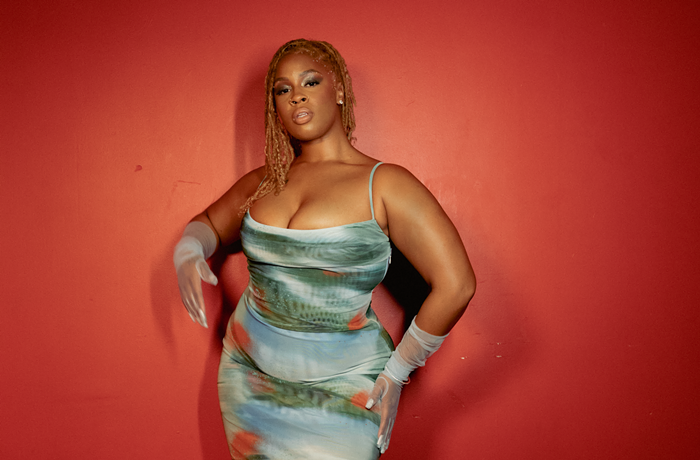WATER IS a mercurial, elemental force. It is essential to life, but great volumes of it can take life away in an instant. We pray for rain when there's not enough, and curse it when there's too much. Our relationship with water is like our relationships with friends, lovers, the places we live—it is a constant and vital presence in our lives and, depending on how immersed in it we are, it can either be a positive force or a catalyst for turmoil and distress.
"Water is a big element in my life," Robin Bacior says at a teahouse on SE Division. "It has always has been a big element in my life. I'm constantly drawn to water."
Bacior began to dream of water in 2012, not long after a brief illness caused her to lose her voice, forcing her to cancel part of a tour. She had been living in New York City on and off for four years, but had become unsettled by all the buzz in New York—the buzz not only from the growing expectations and demands as her music received more and more notice, but also the audible buzz: the subway trains, the storefront gates opening and closing, and the traffic, endlessly ringing in her ears. The city she had always fantasized about living in was wearing her out.
"It's like dating the person of your dreams," she says about her time in New York, "and then realizing that it's not the right person for you." Bacior put her possessions in storage, then returned home to California, to recuperate, reevaluate her career, and consider her next moves. That was when she began to dream of water.
Water dreams can mean many different things, psychologists say, but most commonly they represent a period of transition and a desire for change. After some deliberation, Bacior relocated to Portland, where she set about chronicling her experiences in New York. These songs were recorded over a three-month stretch in early 2014, resulting in Water Dreams, her sixth release and second full-length album, released on January 13. (Full disclosure: Bacior is also a contributing writer for the Mercury's music section.)
Water Dreams is not so much a concept album as it is a suite, with each movement representing a different body of water. Bacior guides the rhythm on piano and guitar, with repeated phrases and deceptively simple melodies, allowing ample space for her voice to weave seamlessly through. With percussion by Ji Tanzer (Blue Cranes), bass guitar by Rian Lewis (who also engineered the album), and cello by Bacior's longtime musical partner, Dan Bindschedler, the music on Water Dreams is sweeping and orchestral, often sounding much larger than the quartet. This is in part due to the brilliant interplay between piano and cello, as well as Bacior's vocals, which she frequently layers and multi-tracks, harmonizing with herself. Bacior's voice is gentle and restrained, as though confiding intimate secrets to her listener, and when she sings, "Go on and wait it out / Oh, I don't care much anymore," on "If It Does," her voice sounds nearly on the point of breaking.
The songs on Water Dreams draw largely from Bacior's past experiences and relationships—and, like a river will bend and change course, they are shaped and strengthened by the journey. "These songs are not so much about one relationship," Bacior says, "but about many different relationships, watching them change, and being humbled by that change."



















